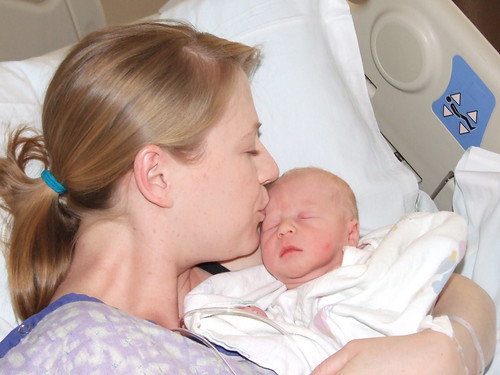
My Godson, Liam Francis Willingham, was born today at 11:55. It is, perhaps, the greatest honor of my life that I have been asked to be this child's spiritual father and it is my fervent wish to prove worthy of this trust.
I love him.
This web log shall concern itself with the issue that Saint Arnulf of Metz struggled with his whole life: how to reconcile our Catholic faith with a life lived in the world.
Vienna, Tuesday afternoon, 5 February 1889
At four o’clock sharp, the bells of the Court Chapel began to toll, slowly. Slowly, proceeded by slow -riding Hussars, the ancient black mourning carriage of the Hapsburgs drove out of the inner Palace courtyard, drawn by a pair of black steeds. The Emperor sat inside. For once the sight of him drew no cheers. Thousands of hands removed thousands of hats. Numberless heads bowed in silence, solders presented arms. Bells tolled, not only those of the Court Chapel now, but that of the cathedral and of all other churches in the metropolis, all beating together slowly, all in one tremendous, melancholy pulse.
Archducal carriages rode out next, coachmen sitting, footmen standing, in black tricornered hats, black livery, black stockings and black-buckled shoes. Then came a single Lipizzaner with a rider in formal Spanish mourning dress. Then a six-horse carriage occupied by Rudolf’s Lord Chamberlains and the principal officers of his personal Court. And then came the hearse itself, a black baroque sculpture, pulled by six Lipizzaner grays. Under a black canopy held up by fretted black columns, surmounted by Rudolf’s arms in gold, the coffin floated through the ringing of the bells. Bells, bells, they rang slowly from the ten thousand and one steeples thought the realm, from Lake Constance on the Swiss border to the wilds of Transylvania. You were never out of earshot of metal, moaning.
On both side of the hearse moved burning torches. Pages in feudal dress held them aloft, marching in single file. Riding in single file to their right were six Arciere Honor Guards with white plumes on silver helmets, their crimson coats studded with gold; to the left, six Hungarian Honor Guards on white steeds, in silver-laced red tunics, tiger-striped capes fluttering off one shoulder. Then came, also on horseback, medieval bodyguards with halberds and black panaches. Then came, marching stiffly, a battalion that was a mosaic of the Monarchy’s armed prowess — one company of the Imperial and Royal Army, one of the Austrian Militia, one of the Hungarian National Guard, one of fezzed Bosnian Sharp-shooters, and one company of Marines in the uniform of the Austro-Hungarian Navy. Then came the lesser figures of Rudolf’s entourage on foot, and finally a rear-guard squadron of Hussars.
And now, as had happened in so many generations, the pageant of a high death was punctuated once more by the halt of the august procession before the small, plain Church of the Capuchins.
Karl Count Bombelles, Rudolf’s First Lord Chamberlain, disembarked from his carriage. With a golden staff he knocked against the simple portal. The dialog began, ancient and brief.
“Who is it?” a friar demanded from the inside.
“His Most Serene Imperial and Royal Highness, the Archduke Crown Prince Rudolf of Hapsburg.”
“We know him not.”
The door remained closed. Again the golden staff knocked.
“Who is there?”
“The Crown Prince Rudolf.”
“We know him not.”
The door remained closed. Once again the golden staff must knock.
“Who is there?”
“Your brother Rudolf. A poor sinner.”
Only then did the door open.
